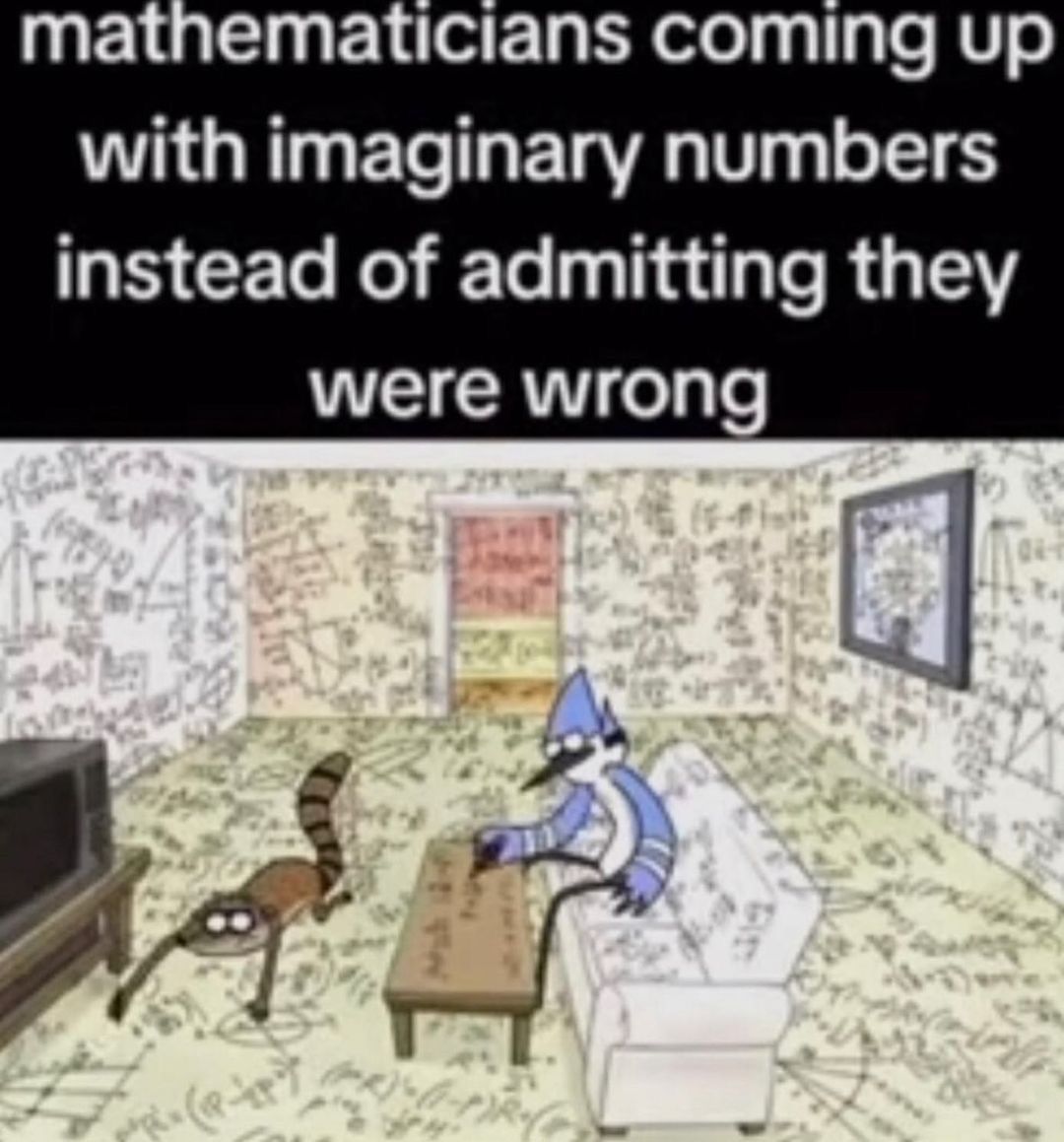this post was submitted on 07 Jun 2024
808 points (95.9% liked)
memes
11197 readers
2703 users here now
Community rules
1. Be civil
No trolling, bigotry or other insulting / annoying behaviour
2. No politics
This is non-politics community. For political memes please go to [email protected]
3. No recent reposts
Check for reposts when posting a meme, you can only repost after 1 month
4. No bots
No bots without the express approval of the mods or the admins
5. No Spam/Ads
No advertisements or spam. This is an instance rule and the only way to live.
Sister communities
- [email protected] : Star Trek memes, chat and shitposts
- [email protected] : Lemmy Shitposts, anything and everything goes.
- [email protected] : Linux themed memes
- [email protected] : for those who love comic stories.
founded 2 years ago
MODERATORS
you are viewing a single comment's thread
view the rest of the comments
view the rest of the comments

One definition of the complex numbers is the set of tuples (x, y) in R^(2) with the operations of addition: (a,b) + (c,d) = (a+c, b+d) and multiplication: (a,b) * (c,d) = (ac - bd, ad + bc). Then defining i := (0,1) and identifying (x, 0) with the real number x, we can write (a,b) = a + bi.
Ok, that's actually quite interesting
Yup, you'll notice the only thing distinguishing C from R^(2) is that multiplication. That one definition has extremely broad implications.
For fun, another definition is in terms of 2x2 matrices with real entries. The identity matrix
is identified with the real number 1, and the matrix
is identified with i. Given this setup, the normal definitions of matrix addition and multiplication define the complex numbers.